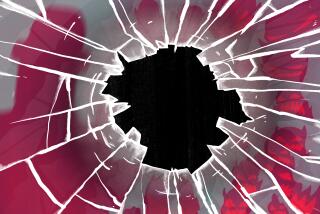Q&A;: Manic-Depressive Disorder
- Share via
Mark Richard Hilbun, accused of killing two people and injuring three others, has been diagnosed as a manic-depressive. However, it is unclear if his condition contributed to the series of assaults he allegedly committed. Psychiatrists say the illness is fairly common and highly treatable. In fact, many famous people from poet Robert Lowell to Sir Winston Churchill are believed to have suffered from the disorder. The Times asked Dr. Michael J. Gitlin, director of the affective disorders program at UCLA’s Neuropsychiatric Institute, to explain the illness.
Q. What is manic-depressive disorder?
A. Manic-depressive illness is also known as bipolar disorder. It is characterized by episodes of mania and depression usually at separate, discrete times. There are times, however, when a person might have a mixed state, in which manic and depressive symptoms occur simultaneously. The manias are characterized by an increased speed of activity. Euphoric or irritable moods, decreased sleep and racing thoughts are often accompanied by inappropriate behavior, grandiose thinking and poor judgment. The depression is characterized by the exact opposite. A sad or apathetic mood is usually accompanied by sleeping too much or not enough, difficulty getting out of bed, suicidal ideation, poor energy, a change in appetite and just feeling overwhelmed by everything.
Q. What causes it?
A. Nobody really knows the cause. It certainly tends to run in families, almost assuredly for genetic reasons. So it is a disorder that can be passed on genetically, although we don’t know exactly how. People with the disorder in their family won’t necessarily get it, but they are at a higher risk to have it.
Q. How common is the illness?
A. About 1% of the United States population will have manic-depressive illness or bipolar disorders over a lifetime. Recurrent depression, without manias, is more common, being found in 5% to 6% of the population.
Q. How is the disorder treated?
A. The treatment rests initially on the use of medications. There is good evidence that manic-depressives will not respond to treatment that does not include appropriate medications. At the same time, a lot people with the disorder need medication plus psychotherapy. The most well-known medication is lithium, which is used to treat the acute mania and to prevent both the manic and the depressive episodes. Inevitably, virtually everyone who has manic-depressive illness will be on a maintenance medication, the goal of which is to prevent future episodes. Other mood-stabilizing medicines are carbamazepine (Tegretol) and valproate (Depakote). Treatment is usually needed throughout a patient’s life.
Q. How severe can the mood swings be?
A. It depends. The episodes occur on a continuum. There are those who have very mild mood swings and there are other people who have relatively severe mood swings with really destructive manias and life-threatening depressions.
Q. Can a manic-depressive disorder account for the type of violent behavior that occurred Thursday?
A. Not knowing anything about this individual, it’s impossible to really know. Certainly, people do sometimes get violent when they are manic, but the type of incident that occurred in Dana Point is really exceedingly unusual for a manic-depressive illness. It makes me wonder whether there were other factors contributing to his violent behavior, but I don’t have enough information to really say.
Q. What else should people know about the illness?
A. One of the problems we run into is that people hear about the illness and say ‘Oh my God, it’s terrible.’ Well, certainly it’s no bed of roses and it is an illness. But it is important for people to know that it is exceedingly treatable. It’s not perfectly treatable, but neither is any other medical disorder from diabetes to high blood pressure. Treatment can definitely make a difference.






